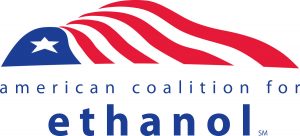 Sustainable fuels technology company LanzaJet today announced a $30 million investment by Southwest Airlines for the development of a sustainable aviation fuel (SAF) facility and collaborate on the corn stover to ethanol technology company SAFFiRE Renewables.
Sustainable fuels technology company LanzaJet today announced a $30 million investment by Southwest Airlines for the development of a sustainable aviation fuel (SAF) facility and collaborate on the corn stover to ethanol technology company SAFFiRE Renewables.
LanzaJet plans to undertake project development efforts for the SAF production facility in the United States, with Southwest as the anchor SAF offtaker. The biorefinery is expected to utilize LanzaJet’s pioneering technology, which is capable of scaling production to the levels needed to decarbonize aviation through widely available and sustainable feedstock, emerging commercial residue-based feedstock solutions, and promising economics. LanzaJet will also support Southwest’s efforts to commercialize SAFFiRE’s technology that processes corn stover into ethanol.
 “The U.S. is an incredibly important market for us – it’s our home, where our technology originated and scaled, the site of our and the world’s first commercial ethanol-to-SAF plant, and an important opportunity to support the existing U.S. biofuels and ethanol industries with our leading ethanol-to-SAF technology,” said Jimmy Samartzis, Chief Executive Officer of LanzaJet. “The alignment of Southwest and LanzaJet is a powerful combination that has the potential to integrate the SAF value chain and to double-down on the US ethanol, aviation, and biofuel industries. Our work together will lead us closer to meeting aviation’s decarbonization goals by continuing to scale SAF production in the United States, while also tapping into the U.S. ethanol industry’s potential to catalyze the next generation of SAF production.”
“The U.S. is an incredibly important market for us – it’s our home, where our technology originated and scaled, the site of our and the world’s first commercial ethanol-to-SAF plant, and an important opportunity to support the existing U.S. biofuels and ethanol industries with our leading ethanol-to-SAF technology,” said Jimmy Samartzis, Chief Executive Officer of LanzaJet. “The alignment of Southwest and LanzaJet is a powerful combination that has the potential to integrate the SAF value chain and to double-down on the US ethanol, aviation, and biofuel industries. Our work together will lead us closer to meeting aviation’s decarbonization goals by continuing to scale SAF production in the United States, while also tapping into the U.S. ethanol industry’s potential to catalyze the next generation of SAF production.”
The U.S. facility to be developed by LanzaJet is also intended to enable the opportunity to convert SAFFiRE’s cellulosic ethanol into SAF.
LanzaJet recently opened Freedom Pines Fuels – the world’s first commercial-scale ethanol-to-SAF plant, located in Soperton, Georgia, which serves as a blueprint for utilizing first-of-its-kind innovation to scale SAF production and enables LanzaJet’s aspiration for 1 billion gallons of SAF production by 2030.
Samartzis spoke just last week to the National Ethanol Conference – listen to his comments.
NEC24 Jimmy Samartzis, LanzaJet 19:36
2024 National Ethanol Conference Photo Album
 A record number of attendees at the Commodity Classic today will hear from both USDA Secretary Tom Vilsack and EPA Administrator Michael Regan in an unprecedented appearance that is expected to announce the updated GREET model that would allow corn-based ethanol to qualify as a feedstock for sustainable aviation fuel (SAF) credits.
A record number of attendees at the Commodity Classic today will hear from both USDA Secretary Tom Vilsack and EPA Administrator Michael Regan in an unprecedented appearance that is expected to announce the updated GREET model that would allow corn-based ethanol to qualify as a feedstock for sustainable aviation fuel (SAF) credits. 












